Bitcoin: what is known about the law that will make El Salvador the world's cryptocurrency laboratory
El Salvador took just three days to become a world reference in bitcoin.
That was how long it took between President Nayib Bukele's surprising announcement that he would propose to Congress to convert cryptocurrency into the country's legal currency and passing the Bitcoin Law without further debate, thanks to the president's majority in Parliament.
Thus, one of the smallest countries in Central America made history by becoming the first in the world to allow bitcoin to be used by its population in the same way as the US dollar, the country's other currency.
The speed of approval and the absence of prior public review have caused great uncertainty about what this will mean for Salvadorans and other countries, financial organizations and foreign investors who have relations with El Salvador.
How and when will the law be implemented?
The approved law, which does not provide much detail about its implementation, will enter into force three months after its publication in the Official Gazette of El Salvador.
From then on, bitcoin can be used in any transaction by any person, natural or legal.
Salvadorans will need a device with internet access to use bitcoin
Products in a supermarket, for example, could be paid for in bitcoin and dollars. The exchange rate between bitcoin and dollar will be freely defined by the market.
To purchase and use bitcoin, Salvadorans will need to have an electronic device with internet. But this is not within everyone's reach: only 45% of the population has access to the Internet and more than 90% of rural households do not, according to a 2020 study by the IDB, IICA and Microsoft.
To solve this, the law guarantees that the State "will promote the necessary training and mechanisms" to the population. Bukele announced that satellite infrastructure will be built to address the lack of connectivity in rural areas.
The approved text indicates that all dollar-denominated cash obligations that existed before this new rule can be paid in bitcoin, which also includes payment of taxes.
Will this mean the end of the dollar?
In theory, the new legislation offers freedom for the population to use dollar or bitcoin.
On the other hand, it contemplates a clear obligation for businessmen or merchants when stating that "every economic agent must accept bitcoin as a form of payment" when a person purchases a good or service, except for those who "by a well-known fact and in a manner obvious" do not have access to the necessary technology.
"This was also done when the dollar was introduced, which was said that prices in dollars and in Salvadoran colon (the now extinct national currency) would coexist. And in the end, as we see today, the colon doesn't work," says economist Cesar Villalona to BBC News Mundo (BBC Spanish service).
The law allows consumers to use dollar or bitcoin, but business owners will be required to accept the cryptocurrency if the customer wishes
Faced with fears that bitcoin will become mandatory in the country, Bukele denies that his goal is to de-dollarize the Salvadoran economy.
"We try to allow the entry of entrepreneurs, talents and innovators in our country. I don't think that having the dollar here is a problem. On the contrary, I think it will help the fact that both currencies are legal tender," the president said on Tuesday in a conversation via social networks.
However, the government promises to offer alternatives to promote the use of bitcoin in the country and the arrival of investors.
Among the incentives to attract new capital in cryptocurrency, Bukele highlighted that El Savador is one of the few countries in the world without property taxes. There will also be no capital gains tax on bitcoin. And the country will offer immediate permanent residence to those investing in cryptocurrency in the Salvadoran economy.
It remains to be seen whether the dollar will lose strength in El Salvador and whether this will affect relations with the US, which are currently distant.
What are the risks?
The main criticism of the project is, without a doubt, the great volatility that characterizes bitcoin. Last April, it was worth more than $63,000 — this week the price dropped to $33,000.
This large fluctuation causes a person's purchasing power, measured in bitcoins, to fluctuate with it.
"It's a complicated situation because this can lead to many speculative attacks that affect people, creating chaos in the monetary system in which savings, pensions, wages can lose or increase in value (...) It's not known, because it's a world of speculation, "says economist César Villalona.
Bitcoin volatility is seen as its main risk
In order not to affect the population's purchasing power, the government announced the creation of a fund of US$ 150 million in the country's Development Bank to automatically exchange bitcoins for Salvadorans who wish to do so.
Thus, Bukele gave as an example that if a fruit seller does not want to take the risk of fluctuation and decides to exchange the bitcoin she receives with her work for dollars, this state bank will buy them at the price she assessed her fruit, regardless of the value. changed from the moment of sale until the deposit of the cryptocurrency in the bank.
"They [businessmen] have to accept bitcoin [as payment currency], but not the risk. They will pass this risk on to the government (...) which can turn it into a profit or a loss [depending on the fluctuation from bitcoin]. This fund will be supported by some losses and some gains (…) but it doesn't matter, because the purpose of this fund is not to make money," Bukele said on Twitter.
"It is a fallacy to say that the exchange rate risk will be assumed by the government and not the people, because the government finances itself with taxes. This means that the entire population, especially the poorest, due to the way in which taxes are collected, will be the ones who will pay the risk," tweeted Ricardo Castaneda, an economist at the Central American Institute for Fiscal Studies (Icefi) in El Salvador and Honduras.
Bukele says his government will take the risk of fluctuating bitcoin value
In addition, analysts believe that this bet on bitcoin could also hinder conversations with the International Monetary Fund (IMF), with which El Salvador is negotiating economic aid of up to US$ 1.4 billion.
Others say the use of bitcoin could facilitate crimes such as money laundering, corruption or extortion, as tracking cryptocurrency transactions is much more difficult than the money that is controlled in the traditional financial system.
What are the benefits?
One of the main advantages for supporters of this initiative in El Salvador is that, thanks to bitcoin transactions, the population can save commissions from intermediaries on the remittances they receive from abroad, up to 30% of the money sent, said Bukele.
Remittances are vital to the Salvadoran economy, accounting for around 16% of its Gross Domestic Product (GDP). Despite the pandemic, last year the country received nearly $6 billion from its emigrants, of whom about 2.5 million live in the US.
The president also pointed out that about 70% of the population does not have a bank account and works in the informal economy, which is why cryptocurrency can improve their financial inclusion.
"It's a big change for the country and it's a great opportunity (…). It will promote economic development, job creation… (…). This will be good for people, for investors, for innovators," he said. Bukele, who credits the current banking system for many of the inequalities in the economy.
Bukele defends the implementation of bitcoin as an engine of the country's economy
"They will say that more foreign investment will come, that production, employment will increase (...) but the same thing was said when we went to dollarization in 2001 and foreign investment has not been better since then until today" says Villalona.
But Bukele is so convinced that the arrival of bitcoin could improve life for Salvadorans that he even believes it will prevent his countrymen's mass migration to the United States.
"If we create more opportunities here, it will ease the pressure at the border. So everyone should be happy (...) I'm sure it will be good for everyone," he said.
Why in El Salvador?
The news that a small country with a modest economy like El Salvador was the first in the world to accept bitcoin as legal tender caused a great surprise internationally.
Not so much because Nayib Bukele is behind it, a president of the millennial generation, who from the beginning made new technologies a fundamental part of his differentiated way of governing and who remains very popular in his country.
But because the ambitious initiative was first announced this week and approved shortly thereafter, in record time and without much debate.
"In a context where El Salvador has many internal and international political problems, this appears. There is a political distraction, obviously, but it is that a decision to change a monetary system cannot be taken like this," says Villalona.
"The implications, whether negative or positive, have not been measured. They have not been studied. It took years for the European Union to switch to the euro. Not here, it's all a matter of days. I think it's very irresponsible action."
The El Zonte region in southern El Salvador has been accepting bitcoin for two years
Bukele says that his main inspiration was the project that has been operating on El Zonte beach, in the south of the country, for over two years, where some companies already accept bitcoin as a form of payment.
According to Villalona, "El Salvador will become a laboratory of this practice, but a simple currency exchange does not improve anyone's life. What it does is give a better salary, a better pension or the entrepreneur to sell more".
In any case, the small Central American country has undoubtedly already become the center of attention for bitcoin promoters and detractors. Its success or failure can determine whether or not the use of cryptocurrencies will spread in the future.
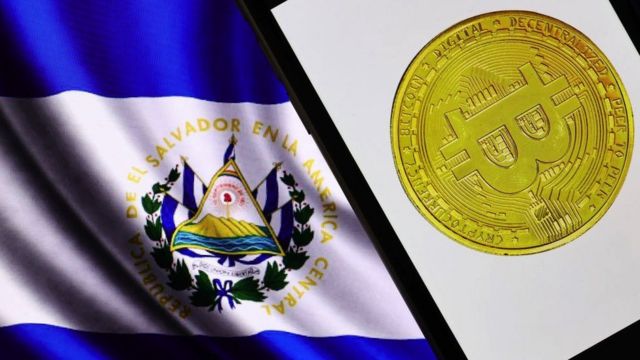
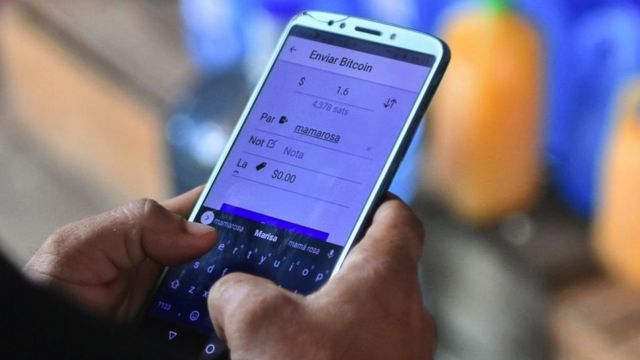
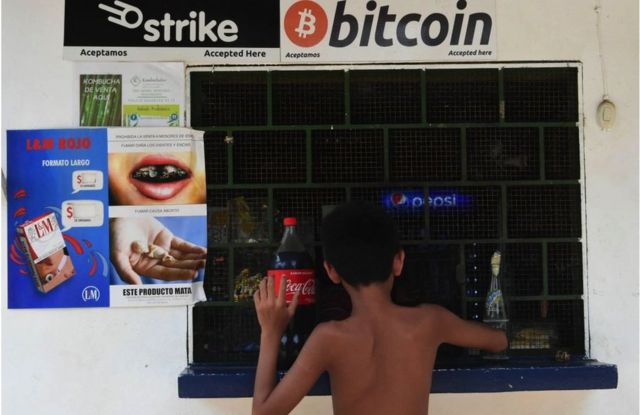
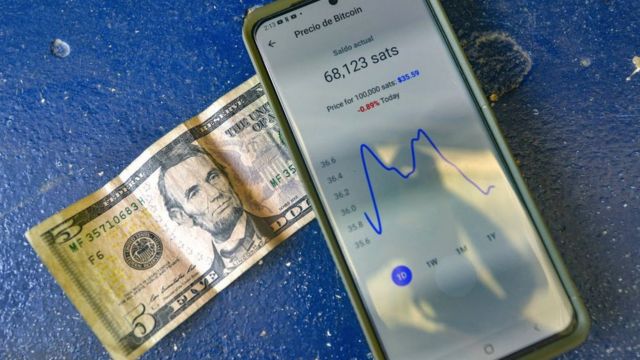
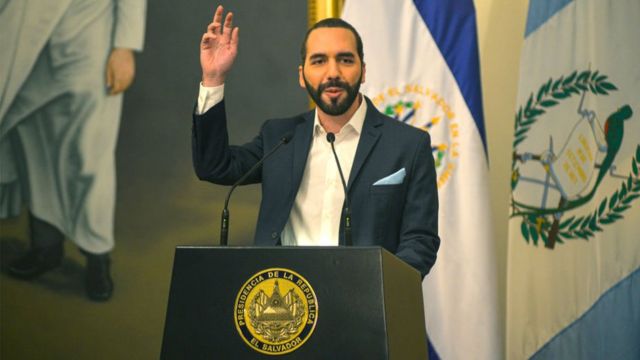
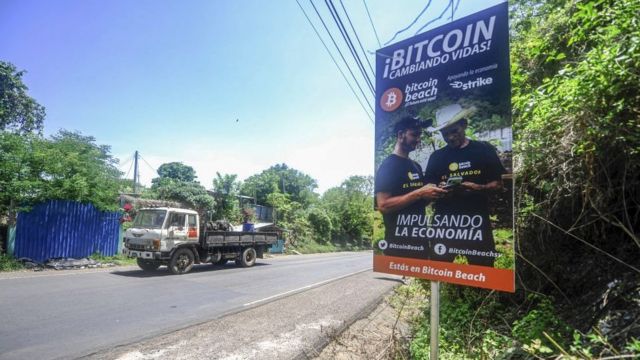
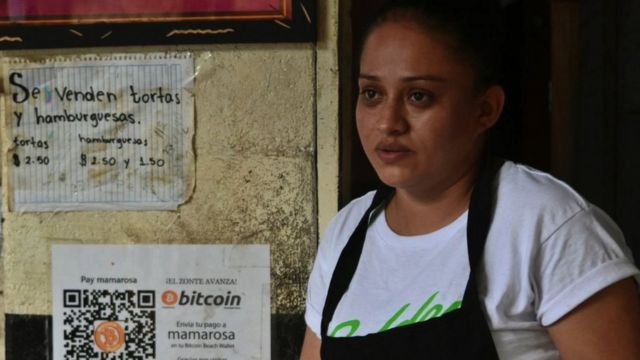

No comments:
Post a Comment